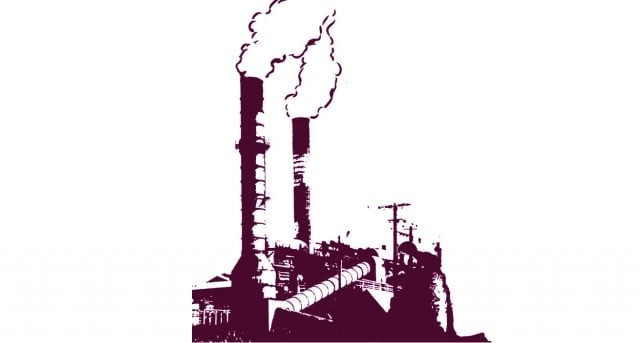JDW brings corporate efficiency to agriculture

JDW brings corporate efficiency to agriculture
JDW is still primarily a sugar manufacturer. However, the firm is beginning to diversify its interests to include dairy farming and power production. But what makes the company different from all of its sugar-manufacturing competitors is the fact that it also owns two of the largest corporate farms in the country, spread out over some 18,000 acres.
The company set up the farms under two separate subsidiaries, JK Agri Farms and AK Agri Farms, in 2009 primarily to ensure a reliable supply chain of sugarcane for the sugar mill. The farms have fully or partially mechanised several processes, reducing the total labour requirement and speeding up both planting and harvesting.
According to the company’s latest available financial statements, the farms are currently on track to yield approximately 550,000 metric tonnes of sugarcane. The total yield of the farm, if the firm succeeds in its objective, should come to 75.5 tonnes per hectare, 44% more than the national average as reported in the Economic Survey 2010.
During the financial year ending September 30, 2009, the company used nearly 2.1 million tonnes of sugarcane, so even at full capacity the farms will deliver only about a quarter of JDW’s existing total requirements. However, the company could not be reached for comment on whether or not such yields had actually been achieved yet.
Consolidating and transforming the sector
JDW is the largest and most profitable sugar mill in the country. In 2009, it had a consolidated net income of Rs588 million. The single largest shareholder in JDW is Jahangir Khan Tareen, though the firm is unusual by Pakistani standards in that more than 49% of the company is owned by ordinary individual investors. It has also been engaging in acquisitions of its smaller competitors.
In 2008, the company acquired United Sugar Mills for Rs1 billion. The company had previously acquired Ghotki Sugar Mills in 2006. It has already integrated United Sugar Mills into its operations and has begun the process of seeking shareholder approval to do the same with Ghotki Sugar Mills.
This endeavour will likely further drive up JDW’s net income, owing to the economies of scale that it can achieve through consolidation. The rising profitability of the company, coupled with their superior yields, has begun to attract the attention of several competitors, especially landowners in areas adjacent to JDW’s farms and manufacturing units.
“[They] are easily one of the best models for how to engage in corporate farming in Pakistan,” says one landowner with holdings across Sindh, who wished to remain anonymous.
Another landowner, also wishing to remain anonymous, however, expressed scepticism as to the impact of the company’s achievements.
“Yes, they have well-run farms but they will never be able to change the way the rural economy works,” he said. “Agriculture is a way of life, not a business.”
Diversifying into power, dairy
Sugar manufacturers have traditionally been small-scale producers of electricity since they can use the molasses, a by-product of the sugarcane crushing, as fuel for an electricity-generating turbine. JDW, however, wants to go a bit further.
In August 2009, the company invested Rs500 million in creating a subsidiary to generate electricity, JDW Power, which is looking to produce up to 80 Megawatts of power in Rahimyar Khan, close to the company’s manufacturing facilities. Given the chronic power crisis in the country, JDW is neither the first nor that last manufacturing firm to set up its own power production capabilities.
The company is also engaged in dairy farming, spending Rs200 million in setting up a farm called JK Dairies. Not many details are available about this venture and the firm’s management could not be reached for comment on the matter.
However, sources familiar with the matter say that the company envisions entering the processed dairy foods business in the medium to long term. In November 2008, the company updated its articles of understanding to include agricultural processing as one of the areas in which the company would be interested in expanding its business to.
The market remains sceptical
Despite all of the progress and the remarkable growth made by the company over the past few years, the market remains unconvinced of JDW’s prowess. The company’s stock closed at Rs64.40 in trading on the Karachi Stock Exchange on Friday. That gives the company a market capitalisation of Rs2.8 billion, which suggests either a gross undervaluation or extreme scepticism on the part of the market as to whether JDW’s growth run is sustainable.
The stock’s P/E ratio, or the ratio between the company’s earnings and its current market value, comes to a measly 4.77, significantly below the already depressed average of 6.9 according to analysis conducted by JS Global Capital, an investment bank. And this does not even take into account the fact that over the first two quarters of the current fiscal year, at Rs813 million, the company has already surpassed its previous year’s entire net income.
JDW’s stock is not covered by any of the research divisions of the major investment banks or brokerage firms so analysts were unwilling to comment.
Published in The Express Tribune, July 5th, 2010.


















COMMENTS
Comments are moderated and generally will be posted if they are on-topic and not abusive.
For more information, please see our Comments FAQ